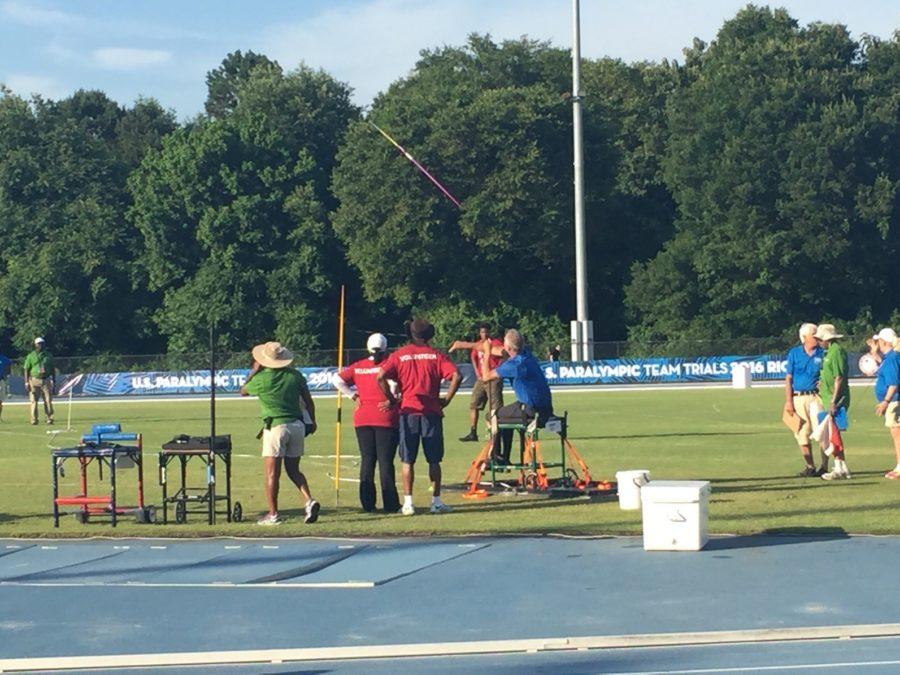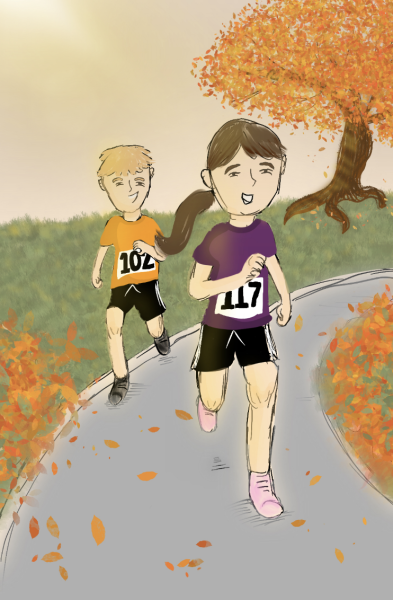Disabled athletes break down barriers to success
When people think of adaptive sports, they may think of wheelchair basketball or blade runners with artificial legs. But there are many events disabled people can participate in. Organizations such as the Great Lakes Adaptive Sports Association (GLASA) and the United States Olympic Committee (USOC) help make this possible. They organize and run regional and national adaptive sport competitions with the help of volunteers. Cathy Caracciolo has been a volunteer with GLASA for 10 years and has helped in events such as Camp TREK and the Midwest valor games.
“My favorite memory was watching my sons, who were high school volunteers, help the athletes get onto their bikes as they got out of the water,” said Caracciolo. “I was amazed to see how comfortable everyone was with one another, and the smiles from the athletes are truly amazing.”
Mr. Tom Huene, father of Saint Viator freshman Michael Huene and decorated Paralympic gold medalist, competed this summer in the 2016 US Paralympics Track and Field events. Huene’s first track meet was in 2013, which was two years after finishing rehabilitation from his operation for spinal cord cancer. Huene competes as a seated thrower in shot put, discus and javelin events. Some of his biggest accomplishments include when he was selected to participate in the USA National Championship Track Meet in San Francisco and when he competed in Charlotte earlier this year.
“I won gold medals in three events: shot put, discus, and javelin,” said Huene. “In Charlotte, I won a gold medal in javelin and two bronze medals in shot put and discus.”
Huene almost made it to team USA, ranking 39th in the country. Today, he is training for the 2017 world championships in London.
Senior Kevin Hamilton is also an adaptive sports athlete that has been participating in adaptive sports since kindergarten.
“The biggest misconception with the Paralympics and adaptive sports is that they are the same thing as the Special Olympics,” said Hamilton. “The Special Olympics are for kids with mental disorders, while adaptive sports are for people that have [physical] disabilities. I enjoy playing wheelchair basketball a lot, and I play now in the the Lincoln-Way Special Recreation Association (LWSRA) team.”
Hamilton also participates in wheelchair rugby and has been playing wheelchair basketball competitively for 8 years.
These athletes compete on some of the biggest stages and prove that a disability is nothing more than a barrier to overcome. Their grit is something to be admired.
Your donation will support the student journalists of Saint Viator High School. Your contribution will allow us to purchase equipment and cover our annual website hosting costs.








